
Find Help
More Items From Ergsy search
-

Mental Health Support Resources for Families
Relevance: 100%
-

Mental Health Support for Families: Resources and Strategies
Relevance: 94%
-

Mental Health Support for Families: Resources and Helplines
Relevance: 94%
-

Mental Health Support for Families: Resources and Guidance
Relevance: 94%
-
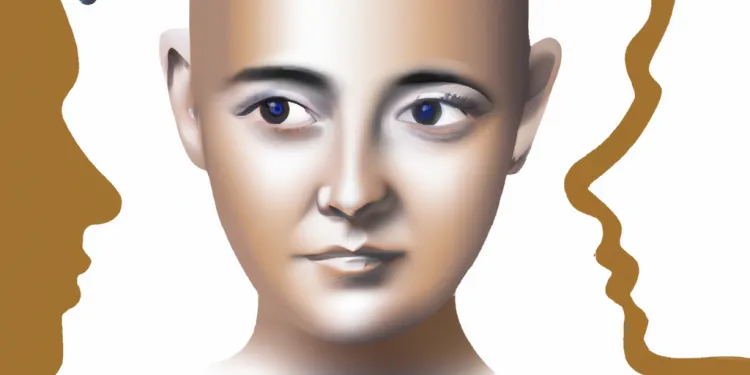
Mental Health Resources for Families
Relevance: 92%
-

Mental Health Support for Families - Latest Resources and Guidance
Relevance: 90%
-

Advancements in Mental Health Resources for Families
Relevance: 88%
-

Mental Health Support Resources in the UK
Relevance: 84%
-

Accessing Mental Health Support Resources in the UK
Relevance: 78%
-

Mental Health Impact of Cost of Living Crisis and Support Resources
Relevance: 71%
-

Mental Health Support Services in the UK
Relevance: 66%
-

What mental health resources are available for seniors?
Relevance: 65%
-

Can primary care support workers access mental health support?
Relevance: 59%
-
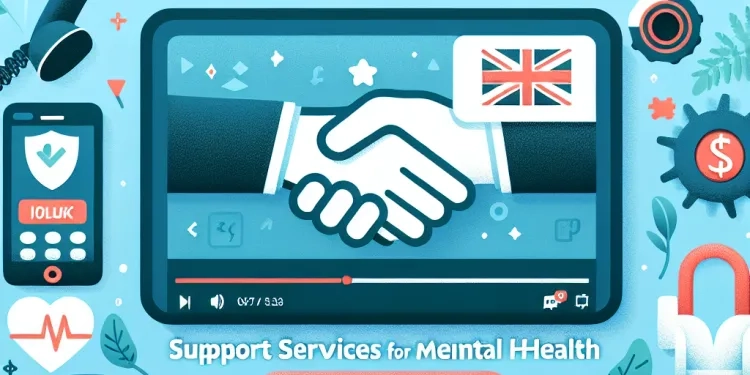
Support Services for Mental Health Amid Economic Uncertainty
Relevance: 58%
-

NHS Unveils Revolutionary Mental Health Support Initiative
Relevance: 55%
-

Mental Health: Laura's Story | NHS
Relevance: 53%
-
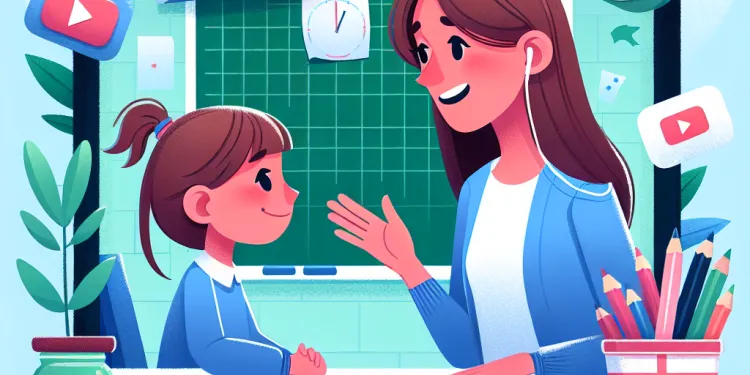
Understanding Mental Health in Children
Relevance: 52%
-

Navigating Mental Health Services for Children and Adolescents
Relevance: 50%
-

Current Challenges in Youth Mental Health Services
Relevance: 50%
-

Tackling Youth Mental Health: Community Initiatives and Solutions
Relevance: 48%
-

Impact of Rising Living Costs on Family Health
Relevance: 48%
-
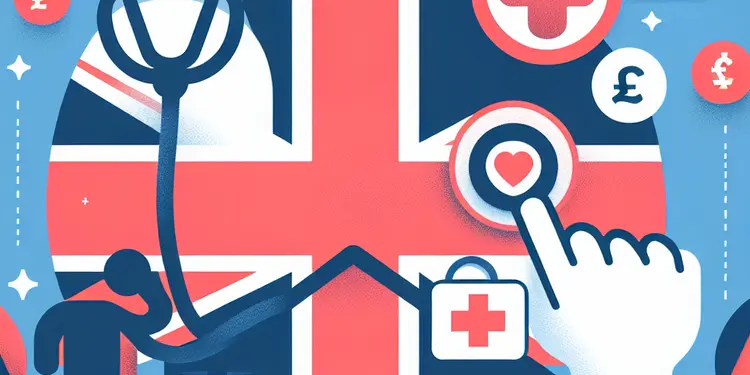
Can community helpers access physical health resources?
Relevance: 46%
-

What is the impact of obesity on mental health?
Relevance: 45%
-

Addressing the Cost of Living Crisis: Community Support and Resources
Relevance: 44%
-

Mental Health Services Struggle to Cope Amid Record Demand
Relevance: 44%
-

New Mental Health Strategy Launched to Address Youth Anxiety Epidemic
Relevance: 44%
-

How can families support a member with autism?
Relevance: 43%
-

Short Films About Mental Health - Trauma PTSD
Relevance: 43%
-

Essential Tips for Mental Health and Well-Being Amidst Rising Living Costs
Relevance: 43%
-

Addressing the Rising Cost of Living: Community Support and Resources
Relevance: 43%
-

Can relationship problems be resolved to improve mental health?
Relevance: 43%
-

What support is available for families of individuals with PIMD?
Relevance: 43%
-
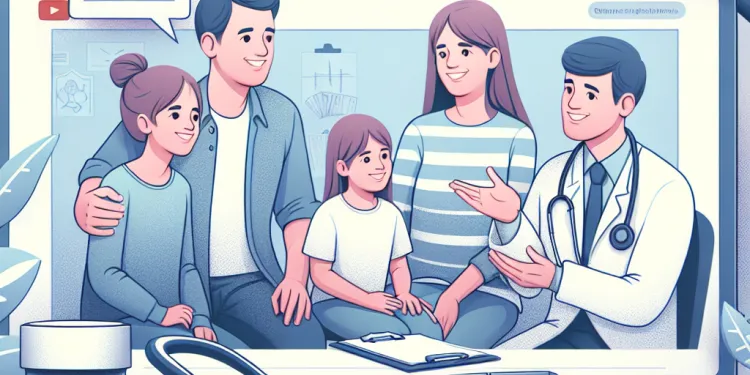
Managing Chronic Illness Within the Family
Relevance: 42%
-
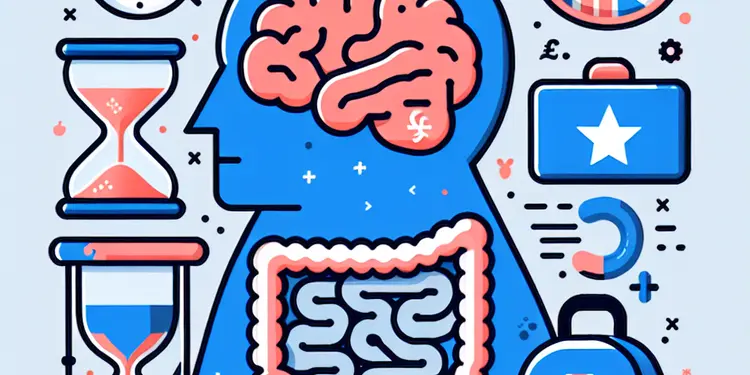
Can gut health affect mental health as one ages?
Relevance: 42%
-

Short Films About Mental Health - Anxiety
Relevance: 42%
-

What is the role of mental health assessments in indefinite sentences?
Relevance: 42%
-

How can family members support someone with postnatal depression?
Relevance: 41%
-

How can community helpers get mental health support?
Relevance: 41%
-

Short Films About Mental Health - Personality Disorders
Relevance: 41%
-

Can ending a toxic relationship improve my mental health?
Relevance: 41%
Mental Health Support Resources for Families in the UK
Understanding the Importance of Mental Health
Mental health is an essential aspect of overall wellbeing, and it is crucial for families to have access to resources that support mental health. Mental health issues can affect anyone regardless of age, background, or lifestyle. Recognizing when you or a family member needs help and knowing where to find support is vital in fostering a healthy and supportive family environment.
NHS Mental Health Services
The National Health Service (NHS) provides a wide array of mental health services for families across the UK. These services include counseling, cognitive behavioral therapy (CBT), and medication management for conditions such as depression, anxiety, and other mental health concerns. Families can access information, self-help resources, and local service listings through the NHS website. Additionally, GPs can offer referrals to specialized mental health professionals for more targeted support.
Charities and Non-Profit Organizations
Several charities and non-profit organizations in the UK offer valuable mental health support for families. Mind, for example, offers information, advice, and local support services. YoungMinds focuses on the mental health of children and adolescents, providing resources for parents and caregivers to support young people facing mental health challenges. The Samaritans also offer a free helpline for anyone struggling to cope, providing a listening ear and emotional support in times of distress.
Online and Digital Resources
In today's digital age, many online resources provide accessible mental health support for families. The NHS provides an extensive online library with self-help guides, mental health apps, and e-counseling services. Websites like Headspace and Calm offer mindfulness exercises and meditation techniques that can help manage stress and anxiety. The Anna Freud Centre's website provides resources specifically designed for parents, carers, and professionals working with young people.
Community Support Groups
Local community support groups can be a valuable resource for families dealing with mental health challenges. These groups offer a supportive environment where individuals can share experiences and obtain advice from others who understand their struggles. Many communities have specific support groups for different mental health conditions, such as depression, bipolar disorder, and anxiety. Information on local groups can often be found through community centers, GP surgeries, or local council websites.
Encouraging Open Discussions
Encouraging open and honest discussions about mental health within the family can be a powerful tool. Creating an environment where family members feel comfortable sharing their feelings and experiences can help reduce stigma and foster mutual support. Families should educate themselves on the signs and symptoms of mental health issues to provide timely and effective support to their loved ones.
Conclusion
Mental health support resources for families in the UK are diverse and readily accessible, offering both professional help and community-driven support. By utilizing these resources and fostering an open dialogue about mental health, families can work together to maintain a healthy and supportive environment for all members.
Mental Health Support Resources for Families in the UK
Why Mental Health Matters
Mental health means how we think and feel. It is very important for everyone. Families need help to keep their minds healthy. Anyone can have mental health problems. It does not matter how old they are or where they come from. It is important to know when you or someone in the family needs help and where to find it. This helps families stay happy and healthy.
Help from NHS Mental Health Services
The National Health Service (NHS) gives lots of help for mental health to families in the UK. They have counseling, talking therapy, and medicine for things like feeling sad or worried. You can find information and help on the NHS website. Family doctors, called GPs, can also find you special mental health helpers.
Help from Charities and Non-Profits
There are charities in the UK that help with mental health. Mind helps by giving advice and local support. YoungMinds helps young people and gives parents and carers tips to support them. The Samaritans have a free phone line if you need someone to listen when you feel upset.
Help from Online Resources
There are many online places to get help. The NHS has a library with guides, apps, and online talking therapy. Websites like Headspace and Calm help you relax and feel less worried. The Anna Freud Centre has help for parents and carers who look after young people.
Help from Community Groups
Local community groups can also help families. People in these groups share their problems and give advice. There are groups for different mental health things like feeling really sad or scared. You can find information about local groups at community centers, your doctor's office, or council websites.
Talking Openly about Mental Health
It is good to talk about mental health in the family. When family members talk about their feelings, it helps everyone support each other. Families should learn about mental health problems so they can help loved ones quickly.
Conclusion
There are many places for families in the UK to get mental health help. This help comes from professionals and the community. By using these and talking openly, families can stay healthy and support each other better.
Frequently Asked Questions
What are common signs that a family member might need mental health support?
Common signs include changes in mood, withdrawal from social activities, decline in personal care, and expressions of hopelessness or helplessness.
Where can families in the UK find mental health support for children and adolescents?
Families can find support through NHS Child and Adolescent Mental Health Services (CAMHS), local GP services, and organisations like YoungMinds.
Are there mental health resources available for elderly family members?
Yes, resources like Age UK, Mind, and NHS services specifically tailored for the elderly can provide support and information.
What should I do if a family member is in a mental health crisis?
In a crisis, contact emergency services, NHS 111, or take them to the nearest A&E. Organisations like Samaritans also offer immediate support.
Can family therapy help with mental health issues?
Yes, family therapy can help improve communication, resolve conflicts, and support collective coping strategies.
How can I support a family member with depression?
Offer emotional support, encourage them to seek professional help, and ensure they have access to resources such as talking therapies and support groups.
Are there specific mental health resources for LGBTQ+ family members?
Yes, organisations like Stonewall and MindOut provide tailored support and resources for LGBTQ+ individuals and their families.
What online resources are available for mental health support?
Online resources include NHS mental health support pages, Mind, Rethink Mental Illness, and apps like Headspace and Calm.
How can I find a mental health support group in my area?
Local GP services, Mind’s website, and community centres can provide information about support groups in your area.
Is there financial assistance for mental health treatments in the UK?
Yes, the NHS provides free mental health services. In addition, charities like Mind and Rethink Mental Illness offer financial advice and support.
What are the benefits of joining a support group?
Support groups offer shared experiences, emotional support, practical advice, and a sense of community for both individuals and families.
Can mental health issues be treated with medication?
Yes, medication can be an effective part of treatment for many mental health conditions, often in combination with talking therapies and lifestyle changes.
How can schools support students with mental health issues?
Schools can provide counselling services, implement mental health education programs, and create a supportive environment for students.
What role can exercise and diet play in supporting mental health?
Regular exercise and a balanced diet can significantly improve mental well-being by reducing stress, anxiety, and depression symptoms.
How can I educate myself about mental health to better support my family?
Reading books, attending workshops, using reputable websites like NHS and Mind, and seeking advice from healthcare professionals can broaden your understanding.
How can you tell if a family member needs help with their mental health?
It can be hard to know if someone in your family needs help. Here are some things to look out for:
- They are sad a lot and do not want to play or have fun.
- They do not want to talk to friends or family.
- They get angry or upset very easily.
- They have trouble sleeping or eat a lot more or less than usual.
- They say they feel worried or scared all the time.
If you see any of these signs, it might be good to talk to them. Telling a trusted adult can also help. Tools like drawing, talking, or using calm-down apps on a tablet can be useful too.
When people are not feeling happy, they might show signs like:
- Their mood changes a lot.
- They stop doing fun things with friends.
- They might not take care of themselves as well.
- They might say things that show they feel like there's no hope or that they can't do anything.
If you see someone with these signs, it can help to talk to a trusted adult or use supportive tools like talking to a school counselor or using a feelings chart to express emotions.
Where can families in the UK get help for children's mental health?
Families in the UK can find help for children's mental health in different places. Here are some places where you can look for help:
- Visit your family doctor or GP. They can give advice and help you find a specialist.
- Check if your child's school has a counselor or support team.
- Search online for charities that help young people with mental health.
- Call a helpline for advice. There are friendly people who can talk and help you.
It can be helpful to talk about feelings with someone you trust. Writing down how you feel or drawing pictures can also help. Remember, it is okay to ask for help.
Families can get help from NHS Child and Adolescent Mental Health Services (CAMHS), their local doctor, and groups like YoungMinds.
Can older family members get help for their feelings?
Yes, there is help for older family members who need support with their feelings. They can talk to a doctor or a counselor. There are also support groups where they can meet and talk to other people. Using videos or phone calls can help them speak to someone from home. Websites or apps on a smartphone can offer advice and activities to feel better. Make sure to ask for help when needed!
Yes, places like Age UK, Mind, and NHS can help older people. They give support and information.
What can I do if someone in my family is really upset or scared?
If there is an emergency, call the police, ambulance, or fire service. You can also call NHS 111 for help, or go to the nearest hospital with an A&E department.
The Samaritans can also help you right away if you need to talk to someone.
Can family therapy help with mental health problems?
Yes, family therapy can help with mental health problems. Family therapy means talking to a special doctor with your family. This doctor is called a therapist.
The therapist helps everyone in the family talk and understand each other. You can share feelings and talk about problems. This can make the family feel closer and work better together.
If someone in the family has mental health problems, like feeling very sad or worried, family therapy can help. It is a way for everyone to support each other.
Here are some tools to help:
- Talk openly: Always share what you feel. It is not wrong to feel sad or angry.
- Support each other: Be kind to each other and listen.
- Use drawing or writing: Sometimes, drawing or writing can help explain feelings.
Remember, it is okay to ask for help. Therapy can make the family stronger and happier.
Yes, family therapy can help families talk better, fix fights, and find ways to handle problems together.
How can I help a family member who is feeling very sad?
When someone in your family is feeling very sad, you can help them. Here are some ways to do that:
- Listen to them: Let them talk about how they feel. Show that you care.
- Spend time together: Do things they like with them. It could be watching a movie or going for a walk.
- Be kind and patient: Understand that they might take some time to feel better.
- Encourage them: Suggest that they talk to a doctor or counselor who can help them feel better.
- Learn about sadness: Read books or look online to understand more about feeling very sad.
Remember, being there is important. You can make a big difference by being a caring friend.
Help them feel better by being there for them. Tell them to talk to a doctor or counselor. Make sure they know about places like talking therapies and support groups where they can get more help.
Can LGBTQ+ family members get mental health help?
Yes, there are places to help LGBTQ+ family members with mental health. Here are some things they can try:
- Visit a LGBTQ+ center. These centers often have counselors who understand their needs.
- Join a support group. Talking to others who feel the same can be very helpful.
- Look for therapists who have experience with LGBTQ+ issues.
- Use websites and hotlines that support LGBTQ+ people. They can give advice and help.
These resources can help LGBTQ+ family members feel better and get the support they need.
Yes, groups like Stonewall and MindOut help LGBTQ+ people and their families. They give special support and information.
What websites can help with mental health?
Here are some places on the internet that can help:
- Helplines: You can talk to someone who listens and helps.
- Websites: Some sites give you tips and info.
- Stories: Read about people who feel the same way.
You can also:
- Use apps that help you stay calm.
- Watch videos that make you feel better.
There are websites that can help you with mental health. You can look at NHS mental health pages, Mind, and Rethink Mental Illness. There are also apps like Headspace and Calm that can help you feel better.
How can I find a mental health support group near me?
If you want to find a mental health support group close to where you live, here is how you can do it:
- Ask a family member or friend if they know of any local groups.
- Use the internet to search for "mental health support group near me."
- Visit your local library and ask for help finding groups in your area.
- Contact a doctor or therapist. They can give you advice and information.
You can use these tips to get the help you need. Remember, it's okay to ask for help. You are not alone.
You can find out about support groups near you by asking at your local doctor’s office, looking on the Mind website, or visiting a community centre.
Can you get help to pay for mental health care in the UK?
Yes, the NHS gives free help for mental health. Also, charities like Mind and Rethink Mental Illness can help with money advice and support.
Why should you join a support group?
Support groups are places where people can share stories, get help with feelings, learn tips, and feel part of a community. They are there for both people and their families.
Can medicine help if someone feels sad or worried?
Yes, medicine can help treat many mental health problems. It often works well with talking to a therapist and making healthy life changes.
How can schools help students with mental health problems?
Schools can help students who have mental health problems. Here are some ways:
- Provide a safe and calm place for students to go if they feel upset or stressed.
- Have counselors at school who students can talk to about their feelings.
- Teach students how to relax and deal with stress.
- Encourage activities that make students feel good, like sports or art.
- Have special lessons to talk about feelings and mental health.
- Involve parents and teachers to support students together.
Schools can use simple techniques to support students’ mental health. These help students feel better and learn better, too.
Schools can help students by providing someone to talk to, teaching about mental health, and making a caring place for everyone.
How can moving your body and eating food help your mind feel better?
Doing exercise often and eating healthy food can help you feel happier. It can make stress, worry, and feeling sad get better.
How can I learn about mental health to help my family?
Here are some easy steps to learn about mental health:
- Read simple books: Look for books with pictures that explain feelings and thoughts.
- Watch videos: Find kid-friendly videos online about how people feel and think.
- Talk to someone: Speak with a teacher or doctor who knows about feelings.
- Join a group: Find a support group where you can talk about feelings with others.
These tools can help you understand mental health and help your family.
You can learn more by reading books, going to workshops, visiting trustworthy websites like NHS and Mind, and asking healthcare experts for advice.
Useful Links
This website offers general information and is not a substitute for professional advice.
Always seek guidance from qualified professionals.
If you have any medical concerns or need urgent help, contact a healthcare professional or emergency services immediately.
Some of this content was generated with AI assistance. We’ve done our best to keep it accurate, helpful, and human-friendly.
- Ergsy carfully checks the information in the videos we provide here.
- Videos shown by Youtube after a video has completed, have NOT been reviewed by ERGSY.
- To view, click the arrow in centre of video.
- Most of the videos you find here will have subtitles and/or closed captions available.
- You may need to turn these on, and choose your preferred language.
- Go to the video you'd like to watch.
- If closed captions (CC) are available, settings will be visible on the bottom right of the video player.
- To turn on Captions, click settings .
- To turn off Captions, click settings again.
More Items From Ergsy search
-

Mental Health Support Resources for Families
Relevance: 100%
-

Mental Health Support for Families: Resources and Strategies
Relevance: 94%
-

Mental Health Support for Families: Resources and Helplines
Relevance: 94%
-

Mental Health Support for Families: Resources and Guidance
Relevance: 94%
-

Mental Health Resources for Families
Relevance: 92%
-

Mental Health Support for Families - Latest Resources and Guidance
Relevance: 90%
-

Advancements in Mental Health Resources for Families
Relevance: 88%
-

Mental Health Support Resources in the UK
Relevance: 84%
-

Accessing Mental Health Support Resources in the UK
Relevance: 78%
-

Mental Health Impact of Cost of Living Crisis and Support Resources
Relevance: 71%
-

Mental Health Support Services in the UK
Relevance: 66%
-

What mental health resources are available for seniors?
Relevance: 65%
-

Can primary care support workers access mental health support?
Relevance: 59%
-

Support Services for Mental Health Amid Economic Uncertainty
Relevance: 58%
-

NHS Unveils Revolutionary Mental Health Support Initiative
Relevance: 55%
-

Mental Health: Laura's Story | NHS
Relevance: 53%
-

Understanding Mental Health in Children
Relevance: 52%
-

Navigating Mental Health Services for Children and Adolescents
Relevance: 50%
-

Current Challenges in Youth Mental Health Services
Relevance: 50%
-

Tackling Youth Mental Health: Community Initiatives and Solutions
Relevance: 48%
-

Impact of Rising Living Costs on Family Health
Relevance: 48%
-

Can community helpers access physical health resources?
Relevance: 46%
-

What is the impact of obesity on mental health?
Relevance: 45%
-

Addressing the Cost of Living Crisis: Community Support and Resources
Relevance: 44%
-

Mental Health Services Struggle to Cope Amid Record Demand
Relevance: 44%
-

New Mental Health Strategy Launched to Address Youth Anxiety Epidemic
Relevance: 44%
-

How can families support a member with autism?
Relevance: 43%
-

Short Films About Mental Health - Trauma PTSD
Relevance: 43%
-

Essential Tips for Mental Health and Well-Being Amidst Rising Living Costs
Relevance: 43%
-

Addressing the Rising Cost of Living: Community Support and Resources
Relevance: 43%
-

Can relationship problems be resolved to improve mental health?
Relevance: 43%
-

What support is available for families of individuals with PIMD?
Relevance: 43%
-

Managing Chronic Illness Within the Family
Relevance: 42%
-

Can gut health affect mental health as one ages?
Relevance: 42%
-

Short Films About Mental Health - Anxiety
Relevance: 42%
-

What is the role of mental health assessments in indefinite sentences?
Relevance: 42%
-

How can family members support someone with postnatal depression?
Relevance: 41%
-

How can community helpers get mental health support?
Relevance: 41%
-

Short Films About Mental Health - Personality Disorders
Relevance: 41%
-

Can ending a toxic relationship improve my mental health?
Relevance: 41%


